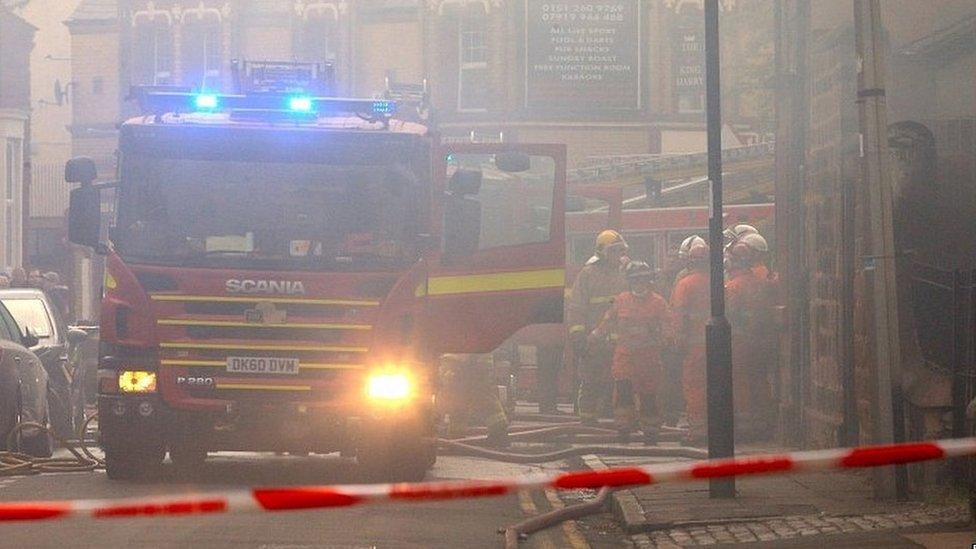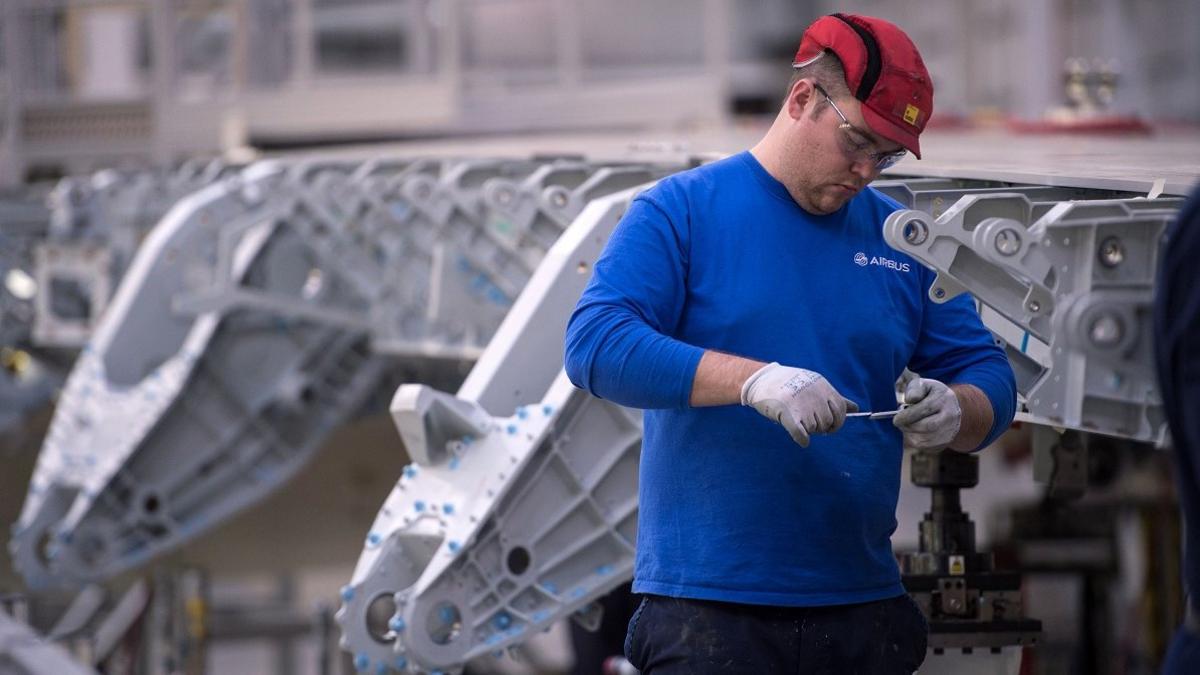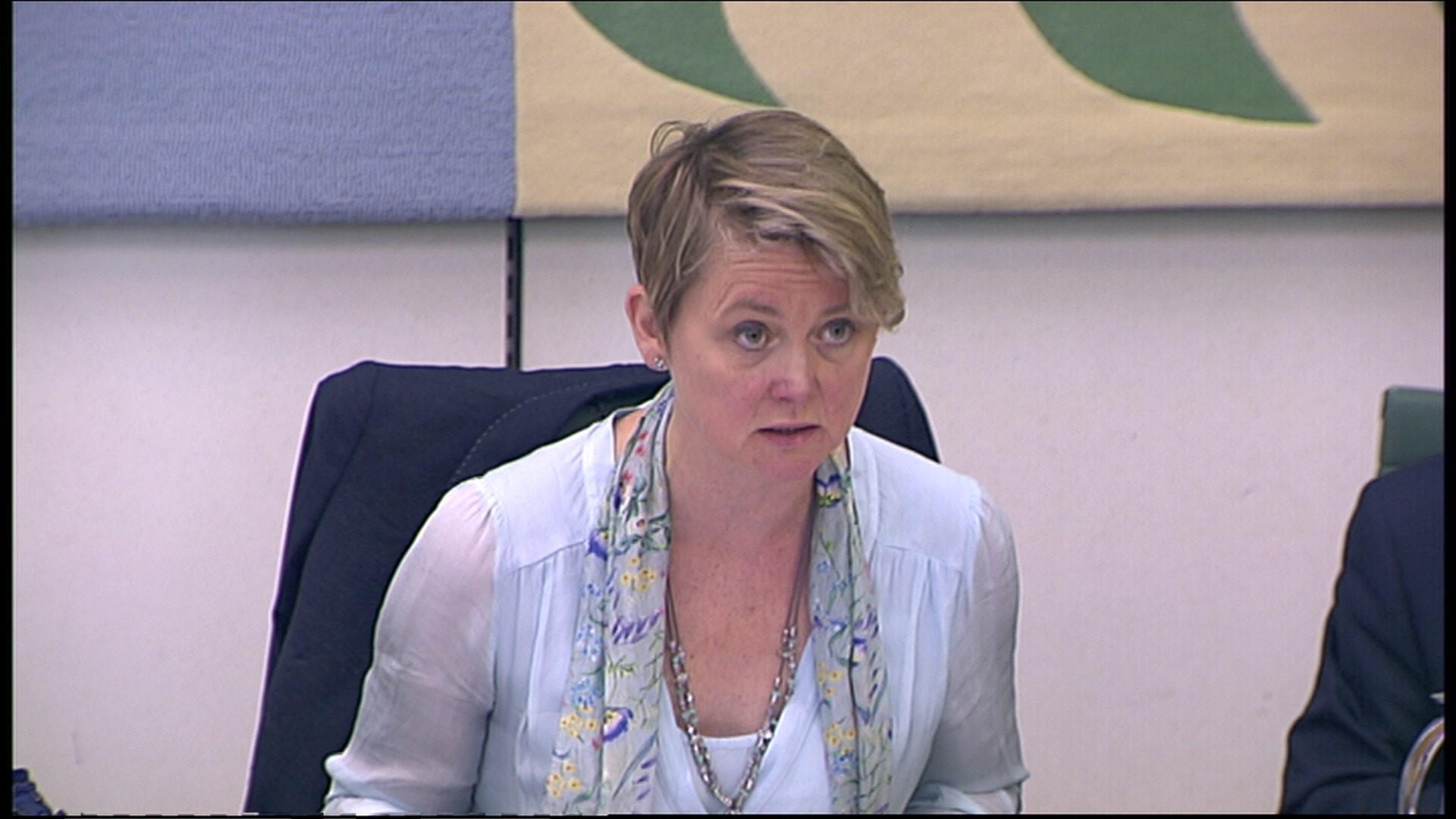Prime Minister's Questions: Leaders clash over pay and jobs
- Published
- comments
Jeremy Corbyn and Theresa May in heated exchanges about pay rates and employment figures
The UK economy is at "breaking point", Jeremy Corbyn has claimed as he clashed with Theresa May over pay and jobs during Prime Minister's Questions.
The Labour leader said real terms wages would continue to fall despite the end of the 1% pay cap in force since 2013.
The Tories' legacy, he said, would be one of slowing growth, job insecurity, rising child poverty and homelessness.
Mrs May said employment was at record levels and Mr Corbyn had broken pledges on rights, Brexit and student debt.
The end of the public sector pay cap was announced on Tuesday - as prison officers were given a 1.7% rise and police officers got a 2% rise (if a 1% one-off bonus is included), this year.
But unions are pressing for an above-inflation rise of up to 5% and have threatened strike action.
On Wednesday, firefighters, whose pay is not covered by an independent review body, said they had rejected an offer of an immediate 2% pay rise, saying it came "with strings attached" and did not adequately "address the pain" they had experienced in recent years.
The Fire Brigades Union said it was concerned about how the pay rise would be paid for and about extra duties its members were being asked to do.
MPs have also passed a Labour motion in the Commons calling for a "fair pay rise" for NHS workers which, although it is non binding on ministers, will increase pressure on the government.
The issue was not forced to a vote, after the Democratic Unionist Party - which has a parliamentary pact with the Conservatives to give Theresa May a working majority and secure the passage of major legislation - signalled they would side with Labour.
Labour, which has not said what scale of pay rise they would like to see, said this showed the extent of opposition to the seven-year policy of wage restraint.
But ministers said it was right for the independent pay review bodies to "look at the evidence" on recruitment and retention in the NHS and overall affordability later this year before making recommendations.
Pay squeeze
Mr Corbyn told MPs that inflation was at 2.9% and that a below-inflation pay increase - to be funded from existing budgets - would not feel like a pay rise to hard-pressed workers.
He asked for a guarantee from the prime minister that no-one working for the prison service or police would lose their jobs in order to pay for the increase.

Firefighters have rejected a 2% pay rise
Widening his attack on the government's economic record, the Labour leader quoted comments reportedly made by Chancellor Philip Hammond to Tory MPs last week, compared his words with Harold Macmillan's famous claim that most Britons "have never had it so good".
Mr Corbyn questioned whether ordinary British families now felt so upbeat about their finances.
"Is it not true that not only is our economy is at breaking point but for many people it is already broken as they face up to the poverty imposed by this government?" he asked.
Mrs May responded by noting that Mr Corbyn had not mentioned the new employment figures which showed a 75,000 fall in joblessness in the three months to July to the lowest jobless rate since 1975.
These figures show, Mrs May said, that the Tories were overseeing sound management of the economy, which Labour would destroy if it got into government.
'Mahatma McCluskey'
The prime minister also suggested the pay of police officers recruited in 2010 was £9,000 higher now, taking into account increases in basic pay, progression pay and increases in the personal tax allowance.
"We need to ensure that we balance out protecting jobs in the public sector, being fair to public sector workers and being fair to taxpayers who pay for it, many of whom are public sector workers," she said.
The Police Federation said suggestions that some of their members were 30% better off than in 2010 was a "joke". While total pay, in cash terms, was up 2%, taking inflation into account, it said it was down 16%.
During the 40 minute session, the prime minister took aim at Unite leader Len McCluskey - a close ally of Mr Corbyn - who has compared unions' fight for fair pay to the struggles of Mahatma Gandhi, among others, and suggested the cause could justify strike action even if legal conditions on strike ballots are not met.
"I was struck this week to see that Len McCluskey, or perhaps Mahatma as his friends call him, had said if they need to act outside the law, so be it.
"On this side of the House, we're very clear - we condemn illegal strikes, we condemn action outside the law".
She also claimed Mr Corbyn had let down British workers by opposing the EU Withdrawal Bill - which she said would embed employment protections in British law - and students over whether or not Labour would write-off student debt.
- Published13 September 2017

- Published12 September 2017
